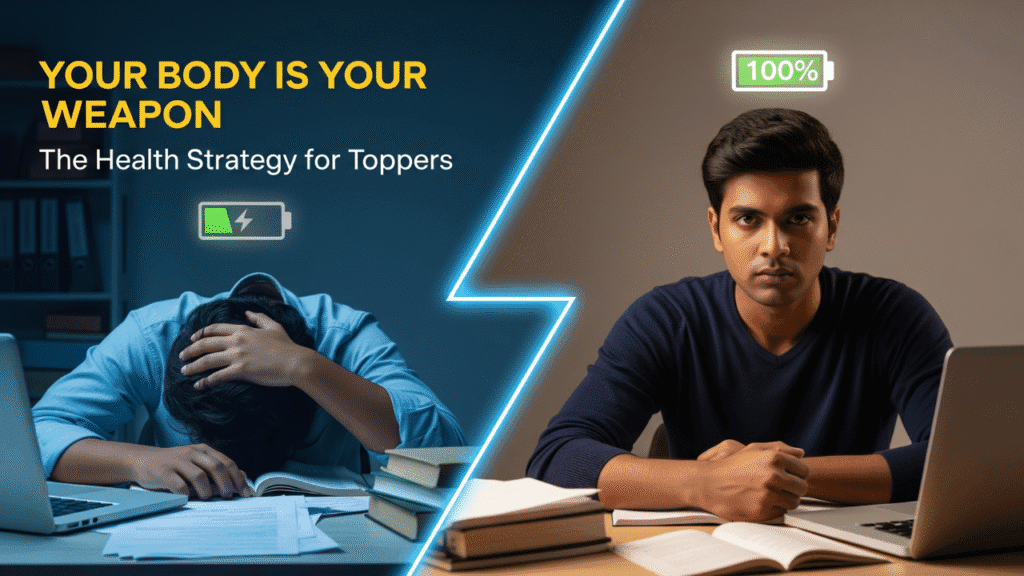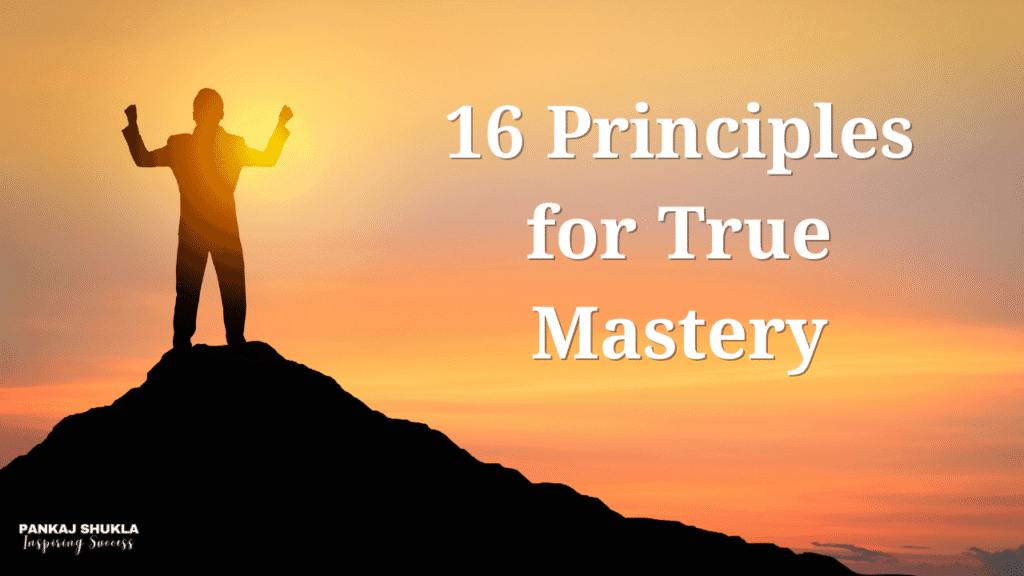
Your physical and mental health are your greatest competitive advantages. This comprehensive guide covers the sleep, nutrition, and exercise strategies essential for every serious aspirant.
The biggest myth in the world of UPSC preparation is the romance of sacrifice. We are told that to conquer this exam, we must sacrifice sleep, survive on caffeine, and chain ourselves to our desks. This is not just a myth; it is a catastrophic strategic error. Your greatest strategic asset is not your booklist or your coaching notes; it is your body and mind. The optimal health for UPSC aspirants is not a luxury; it is the very foundation of peak performance.
This guide will dismantle the sacrifice myth and give you an actionable blueprint. Understanding the direct link between UPSC preparation and health is the first, most critical step toward building a sustainable and successful campaign for the civil services.
The Unseen Enemy: Why Poor Health is a Silent Rank-Killer
Neglecting your physical and mental well-being is not a sign of dedication; it’s a form of self-sabotage. It leads to a cascade of performance-killing problems:
- Decreased Cognitive Function: Lack of sleep directly impairs memory consolidation, critical thinking, and problem-solving abilities.
- Poor Concentration: An unhealthy diet and lack of exercise lead to energy crashes and an inability to focus during long study sessions.
- Increased Stress & Anxiety: Poor physical health exacerbates mental health challenges, making you more susceptible to burnout and exam-related anxiety.
- Weakened Immunity: The last thing you need is to fall sick for a week before your Prelims or Mains exam.
Learning how to stay healthy during UPSC preparation is not about avoiding these negatives; it’s about unlocking your highest potential.
The Holy Trinity of Peak Performance: A System for Your Health
You don’t need a complex regimen. Your entire health strategy can be built on three powerful pillars. Mastering these is essential for your physical health for UPSC and, by extension, your mental acuity.
The culture of glorifying 4-5 hours of sleep is the most damaging in the aspirant community. Sleep is not a passive state of rest; it is an active state of neurological repair and memory consolidation.
- The Science of Sleep for UPSC Aspirants: During deep sleep, your brain clears metabolic waste products and, more importantly, transfers information from your short-term memory (what you studied today) to your long-term memory. Sacrificing sleep is like studying for 10 hours and then hitting the delete button on 50% of your work.
- The 7-Hour Non-Negotiable Rule: Aim for a consistent 7-7.5 hours of quality sleep. Not 8, not 6. Find your sweet spot. A consistent sleep schedule (waking up and sleeping at the same time) is more powerful than the total duration.
- Optimize Your Sleep Environment: Make your room as dark, quiet, and cool as possible. Avoid screens for at least an hour before bed, as the blue light disrupts melatonin production. Read a physical book instead.
Your brain consumes about 20% of your body’s calories. What you eat directly translates into your ability to focus, recall information, and maintain energy levels.
- Think Like a Marathon Runner: Your preparation is a marathon, not a sprint. You need slow-release energy, not short bursts from sugar and caffeine. Prioritize complex carbohydrates (oats, brown rice, whole wheat), lean proteins (eggs, lentils, chicken), and healthy fats (nuts, seeds, avocado).
- The Hydration Imperative: Even mild dehydration can cause fatigue, headaches, and a significant drop in concentration. Keep a water bottle on your desk at all times. Aim for 2-3 liters per day.
- Strategic Snacking: Avoid junk food. Your go-to snacks should be brain-boosters like a handful of almonds, a piece of fruit, or yogurt.
Hours of sitting make your body and mind stagnant. Exercise is not about building muscle; it’s about boosting blood flow to the brain, releasing endorphins (natural stress-busters), and improving your mood.
- Schedule Your 30 Minutes: A daily, non-negotiable 30-minute block for physical activity is essential. It could be a brisk walk, jogging, cycling, yoga, or a simple home workout.
- The Power of a Walk: A simple walk is a powerful tool. Use it to disconnect, listen to a podcast (non-UPSC related), or simply process the information you’ve studied.
- Exercise is a Study Tool: Think of exercise not as time taken away from studies, but as an activity that makes the remaining study hours more productive and efficient.
Your Health is Your Strategy
Integrating these pillars into your UPSC study plan is the smartest decision you will make. Your body is not a vehicle you punish on your way to success; it is the very weapon with which you will fight and win this battle. Respect it, nurture it, and it will carry you across the finish line. Excellent health for UPSC aspirants is not a matter of chance; it is a matter of choice. Make the right one.








